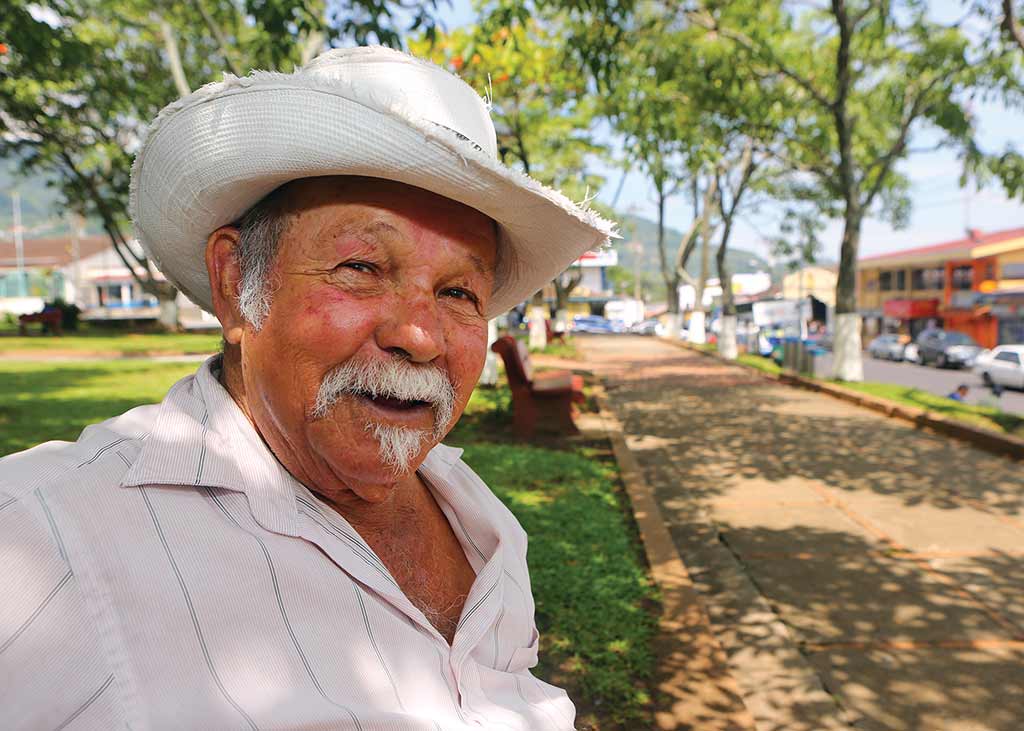Most Costa Ricans—Los Costarricense, or Ticos—insist that their country is a “classless democracy.” There is considerable social mobility, and no race problem. A so-called middle-class mentality runs deep, including a belief in the Costa Rican equivalent of the American conviction that through individual effort, sacrifice, and a faith in schooling, any Costa Rican can climb the social ladder and better themselves.
Like the English, they’re terribly frightened of embarrassing themselves and of appearing rude or vulgar.Despite its relative urban sophistication, Costa Rica remains a predominantly agrarian society, and despite the high value Ticos place on equality and democracy, their society contains all kinds of inequities. Urbanites, like city dwellers worldwide, condescendingly chuckle at rural “hicks.” And the upwardly mobile “elite,” who consider menial labor demeaning, indulge in conspicuous spending and, sometimes, snobbish behavior. Overt class distinctions are kept within bounds by a delicate balance between “elitism” and egalitarianism unique in the isthmus; even the president is inclined to mingle in public in casual clothing and is commonly addressed in general conversation by his first name or nickname.
Costa Ricans have been rated the happiest people in the world. Photo © Christopher P. Baker.
Although comparatively wealthy compared to most Latin American countries, by developed-world standards most Costa Ricans are poor; the average income in the northern lowlands is barely one-seventh of that in San José. Many rural families still live in simple huts of adobe or wood, and at least one-fifth of the population are marginados who live in poverty. More than half of rural homes lack clean drinking water, while almost one-third of urban homes lack clean water. Child labor exploitation is also a major issue, as is sexual crimes against minors.
However, that all paints far too gloomy a picture. In a region where millions starve, the Costa Ricans are comparatively well-to-do. Most Costa Ricans keep their proud little bungalows tidy and bordered by flowers, and even the poorest are generally well groomed and neatly dressed.
Costa Ricans’ unique traits derive from a profoundly conscious self-image, which orients much of their behavior both as individuals and as a nation. The Ticos—the name is said to stem from the colonial saying “we are all hermaniticos” (little brothers)—feel distinct from their neighbors by their “whiteness” and relative lack of indigenous culture. Above all, the behavior and comments of most Ticos are dictated by quedar bien, a desire to leave a good impression. Like the English, they’re terribly frightened of embarrassing themselves and of appearing rude or vulgar. They often prefer to lie rather than telling you an unpleasant truth, which is considered rude and to be avoided.
Ticos are also hard to excite. They lack the volatility, ultranationalism, and deep-seated political divisions of their Latin American brethren. It is almost impossible to draw a Tico into a spirited debate or argument. They are loath to express or defend a position and simply walk away from arguments. Former president Figueres once accused Ticos of being as domesticated as sheep; they are not easily aroused to passionate defense of a position or cause. As such, resentments fester and sneaky retributions—such as arson—are common. Many North American and European hoteliers and residents bemoan the general passivity that often translates into a lack of initiative. Nonetheless, they are savvy businesspeople with a bent for entrepreneurship.
The notion of democracy and the ideals of personal liberty are strongly cherished. Costa Ricans are intensely proud of their accomplishments in this arena and gloss over endemic theft, corruption, and fraud. There is only a limited sense of personal responsibility among Ticos, who display a limited regard for the law. Their Bud Light culture has been called the “white bread” of Latin America.
The cornerstone of society is the family and the village community. Social life still centers on the home. Nepotism—using family ties and connections for gain—is the way things get done in business and government. But traditional values are severely challenged. Drunkenness among the working classes is common. Drug abuse has intruded, and Costa Rica has become a major trading zone for cocaine traffic. And though many Ticos display a genuine concern for conservation, that ethic is still tentative among the population as a whole.
Excerpted from the Tenth Edition of Moon Costa Rica.